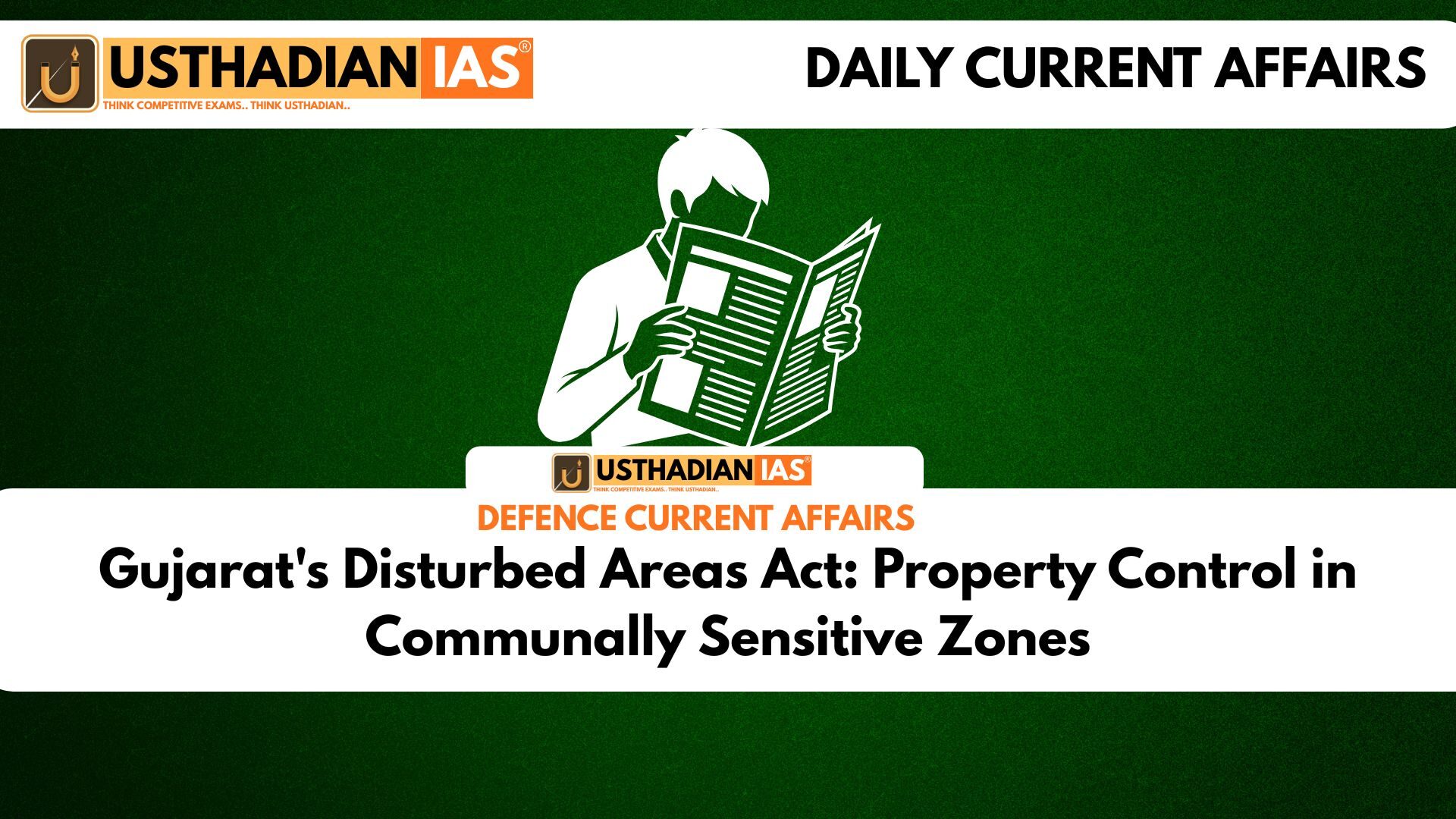Why the Disturbed Areas Act Matters in Gujarat
Gujarat’s Disturbed Areas Act: Property Control in Communally Sensitive Zones: In Gujarat, where communal tensions have historically shaped social dynamics, the Disturbed Areas Act plays a critical role in regulating property sales in sensitive zones. The law aims to maintain communal balance by preventing the sale or transfer of property that might trigger demographic shifts or polarisation in neighbourhoods marked as disturbed. With recent amendments, the law’s scope and power have expanded, leading to increased oversight by the state’s administrative machinery.
Understanding the Core of the Act
The Disturbed Areas Act was originally enacted to regulate transactions of immovable properties—such as houses or land—in localities affected by communal riots or long-standing religious tensions. An area is declared “disturbed” by the district Collector after assessing its history and current social fabric. Once designated, any property sale or transfer within such an area cannot proceed without official permission. This mechanism ensures that any transaction is carefully vetted for its potential impact on communal harmony.
What Sellers and Buyers Must Do
If someone wishes to sell property in a disturbed area, they must apply to the Collector with detailed documentation. This includes an affidavit confirming that the transaction is voluntary, and that the market value is fair. The Collector then conducts an inquiry—hearing both parties and reviewing the local demographic context—to determine if the sale could disturb the social balance. Only after this review can the sale be legally approved.
Penalties for Violations
Selling property in a disturbed area without the Collector’s approval is a punishable offence. Under the law, violators can face imprisonment from six months to five years, depending on the severity of the breach. These penalties are designed to deter backdoor deals that could lead to community unrest or manipulation of demographics for political or religious motives.
Recent Amendments: A Stricter Framework
In 2020, the Gujarat government amended the Act to increase the powers of the district Collector. Now, the Collector can actively investigate the social impact of a property sale, particularly looking for signs of communal clustering—where one group might gradually replace another in a neighbourhood. Moreover, the state government can now review the Collector’s decision even without an appeal being filed. This new oversight provision has been introduced to tighten the regulatory grip and prevent misuse.
Legal Disputes and Court Responses
The Act has been challenged in several Gujarat High Court cases, especially from districts like Vadodara, where neighbours have opposed property transactions citing communal imbalance. While some cases have seen courts upholding the Collector’s authority, others have questioned third-party interference in what is otherwise a private contract between buyer and seller. This tug-of-war continues to fuel legal debates around property rights versus social responsibility.
Areas Under the Law’s Reach
Currently, the Disturbed Areas Act is in effect in major cities such as Ahmedabad, Vadodara, and Surat, and has been extended to new areas including Anand district. This expansion reflects the state government’s ongoing efforts to ensure that property transactions do not become tools for communal reshuffling.
STATIC GK SNAPSHOT
| Topic | Details |
| Act Name | Gujarat Disturbed Areas Act |
| Year Enacted | Originally passed in 1991 (amended in 2020) |
| Purpose | Regulate property sales in communally sensitive areas |
| Permission Required From | District Collector |
| Penalties | 6 months to 5 years imprisonment for violations |
| Amendment Year | 2020 – Increased Collector powers, state-level oversight |
| Key Cities Covered | Ahmedabad, Vadodara, Surat, Anand |
| Legal Challenges | Gujarat High Court – Vadodara property sale objections |
| Related Governance Objective | Maintain communal harmony and prevent demographic imbalance |








